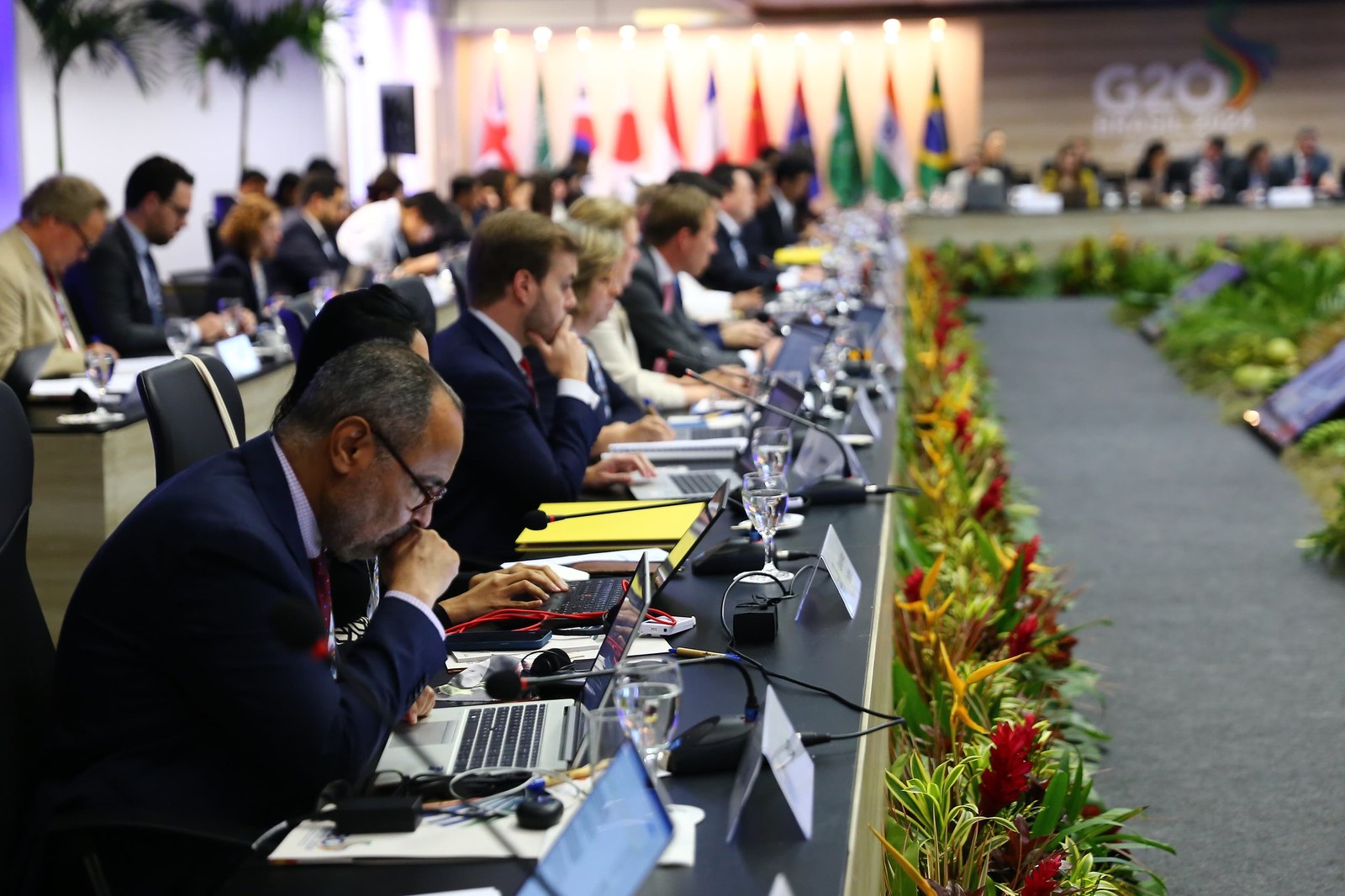Brazilian proposal ignites WG discussions on trade and sustainability principles
Discussions advance based on the Brazilian presidency’s draft on common principles; negotiations close in October with the meeting of G20 countries’ Trade Ministers.

The G20 Trade and Investments Working Group (TIWG) closed the second round of in-person meetings under the Brazilian presidency this Friday (28) in Rio de Janeiro. The WG had agreed to use the first draft presented by Brasil in which the guiding principles for the elaboration and implementation of sustainable development measures related to trade were introduced. This is one of the priority issues debated among the countries attending the event.
“We know that the issue is complex, that there are important divergences about it. The good news, however, is that the G20 countries have agreed to use the Brazilian draft, making suggestions, edits, additions, etc. so that we continue to seek convergence, which is our goal,” stated Tatiana Prazeres, Secretary of Foreign Trade at the Brazilian Ministry of Development, Industry, Trade, and Services (MDIC) during a press conference. Prazeres co-chairs the WG alongside Ambassador Fernando Pimentel, Director of the Trade Policy Department at the Brazilian Ministry of Foreign Affairs (MRE).
According to Ambassador Pimentel, all countries understand that the G20 is an important forum to discuss the intersection between trade and sustainable development. Among the principles proposed by the Brazilian presidency, the Ambassador said, are transparency and coherence with the existing international agreements. “Developed and developing countries diverge in some aspects, but there is consensus around the importance of the theme. We are seeking a common denominator. The principles must be general in order to allow for flexibility in various situations”.
The Brazilian presidency’s draft proposal incorporates contributions received from group participants since the first TIWG meeting in January this year. It includes principles that are less controversial, such as transparency and coherence, as well as more complex ones that still require further debate.
The TIWG coordinators underscore that there is still much work to be done in order to achieve convergence among G20 members positions and there is no guarantee for reaching consensus. At the same time, the Brazilian representatives highlight that the discussions about trade and sustainable development have proven useful in the context of the G20, a group that answers for around 85% of the global GDP and over 75% of the world’s trade flows (more data available at the Especial G20 webpage).
In addition to trade and sustainable development, the Working Group has been discussing three other priority themes. One of them is about women and international trade. The group has been putting effort into consolidating a G20 countries’ best practices compendium containing policies to increase female participation in trade.
Sustainable development in investment agreements and the World Trade Organization (WTO) reform are also under discussion in the group.
On the sidelines of the TIWG, the Brazilian delegation also held bilateral meetings with India, South Africa, Argentina, China, the United States, Indonesia, the European Union, and Switzerland.
TIWG negotiations will continue until October this year when the G20 Trade Ministers will meet in Brasilia to adopt the documents consolidating the consensus reached by the group. The Trade Ministers meeting will be presided over by Brazil’s Vice President and Minister of Development, Industry, Trade, and Services (MDIC) Geraldo Alckmin.